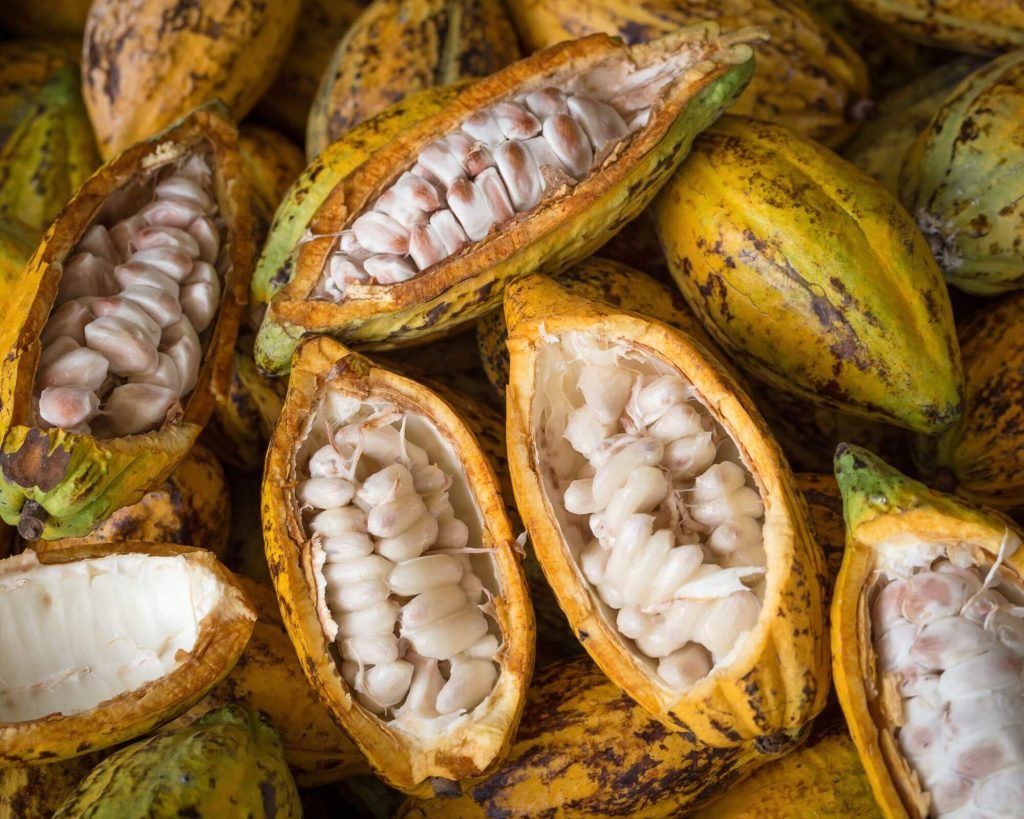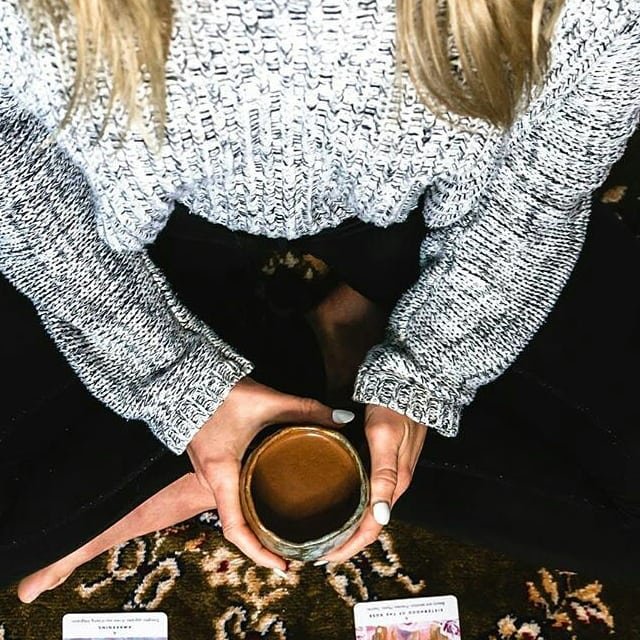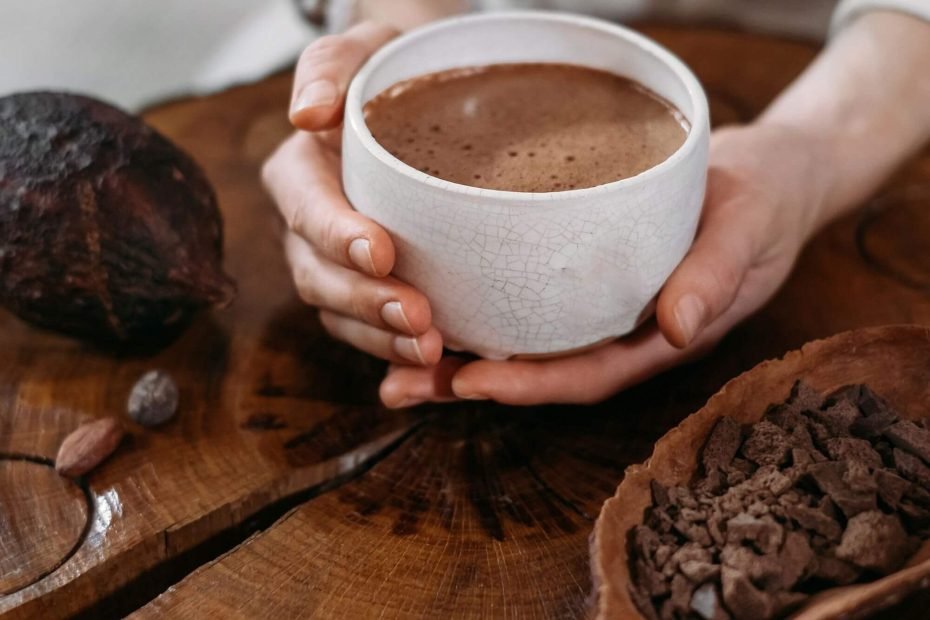Cacao, and in particular, ceremonial cacao, has a long and fascinating history that has health at its core.
Reverence Events Co-Founders Catherine and Willow Francis have been holding regular Cacao Ceremonies in Perth, Western Australia since 2010. With roots in medical training and a dedication to wisdom traditions and holistic health, they weave science and spirituality into every event they offer.
In a world where culinary experiences often cater purely to the taste buds, there exists an ancient and mystical plant medicine whose impact spans the globe and the health spectrum.
Many of you know that cacao is the source of all chocolate, but what is ceremonial cacao and what benefits does it offer for our physical health?

The Origins of Ceremonial Cacao
Ceremonial cacao originates from the Theobroma Cacao tree. This tree is native to the dense rain forests of Central and South America and was first cultivated by the Olmec people.
The Olmecs were the earliest known major Meso-american civilization to deliberately cultivate cacao for nutrition and for use in spiritual ceremonies. They thrived between around 1500 BCE – 350 BCE.
The Theobroma Cacao tree as it is known today, was named by botonist Carl Von Linneu in 1753.
Theobroma is from the Greek “theo” meaning God or the Divine and “broma” meaning food. This term is often translated as “the food of the gods.”
Cacao is the fruit that the tree yields. This fruit is also known as a cacao pod.
The taste, nutrition and spiritual potentials of the seeds within the pod (also known as beans) are what cacao and chocolate lovers are most fascinated by.
The journey from cacao tree to ceremonial cacao involves an intricate process that transforms the seeds from bitter and acidic, to the rich, chocolatey flavour we know and love.
The intention, ethics and quality of this process differentiates cacao from ceremonial cacao and has a direct impact on the nutrition.

The Transformation of Cacao
The journey begins with the careful harvesting of the cacao pods. Once harvested, usually twice per year, the hard pods are opened to remove the cacao beans (or seeds) within.
These seeds are nestled in a bed of sweet pulp (the cacao fruit) that is often made into a roadside refreshing tropical fruit drink.
The cacao beans are the heart ceremonial cacao and are the nutritional powerhouse of the fruit.
Initially, the beans are purple and very bitter. Once removed from the pods, they are fermented in their own pulp, traditionally between banana leaves, over 3 – 5 days.
During this time, they undergo an incredible process of fermentation.
As the beans ferment, naturally occurring yeasts in the soil start to heat up the pulp. The enzymes in the cacao beans are activated and these begin to ‘chew’ on the proteins within the bean.
This breaks down the amino acid chains and releases the flavour precursors. Thus our delicious chocolatey aroma and flavour is born!

From Beans to Paste: Crafting Ceremonial Cacao
Once fermented, the beans are laid out to dry in the sun, or in covered drying sheds, for two weeks. The cacao beans can now be enjoyed as is.
Commercial chocolatiers will then roast the cacao beans to high temperatures. The roasting draws out flavour, allowing lesser quality cacao beans to be used. Once roasted, the beans are often referred to as ‘cocoa’ rather than ‘cacao’.
Roasting does however have a negative impact on some of the nutritional benefits of cacao. Anti-oxidant levels are significantly depleted as are some of the more heat-sensitive neuro-chemicals such as tryptophan (an essential precursor to serotonin, essential for stress defense and resilience).
The beans are then milled (or ground) carefully and finely to create the cacao paste, also known as cacao liquor. The paste sets into blocks.




Defining Ceremonial Cacao: Beyond Taste

What Is Ceremonial Cacao?
The term “ceremonial” implies that is it grown, prepared and consumed with intention and respect.
Ceremonial cacao needs to originate from organic, fair and sustainable cultivation, demonstrating a genuine commitment to the environment, the farmers, and the communities they support.
It is cacao that has been grown, processed and prepared with integrity in an ethical way – and creates a drink from the cacao paste that nourishes us physically as well as taking a role as a spiritual sacrament.
This sacrament is often made with warm water, is sweetened and sometimes infused with spices such as cinnamon, chilli, or vanilla.
Preparing, serving an consuming cacao needs to be a mindful and reverent practice. This contributes to it’s ceremonial status.
The Nutritional Benefits of Cacao
Now that we’ve discussed the origins, cultivation and preparation of cacao, let’s delve into some of the most potent nutritional qualities it offers.
At its core, cacao is a nutritional powerhouse that nourishes the body, mind, emotions and spirit.
The Science Behind the Health Benefits of Ceremonial Cacao
While ceremonial cacao has been revered for centuries for its heart-opening and mood-enhancing properties, modern science is now catching up to its many physiological benefits. According to a study published in Current Opinion in Clinical Nutrition and Metabolic Care, cacao contains powerful compounds that may help reduce inflammation, support cognitive function, regulate metabolism, and even play a role in immune modulation. The study highlights that cocoa’s antioxidants may protect neurons, enhance mood, improve glucose metabolism, and contribute to overall immune health (Kita et al., 2013).
Antioxidants: Guardians of Cellular Health
Cacao, particularly in it’s pure form, is one of the richest sources of antioxidants of any food.
Antioxidants help clear the body of free radicals. Free radicals are unstable cells (missing an electron) that can wreak havoc on the body.
Antioxidants donate an electron and stable the cell so it can be safely excreted from the body.
The type of antioxidants in cacao are primarily the flavanoids and polyphenols. These have, in the research, been shown to be particularly supportive for the cardiovascular system.
The flavanoids help to lower blood pressure, improving the flexibility of the blood vessel walls and clear build up in the arteries (also known as plaques). This kind of build up can lead to strokes and heart attacks if left unchecked.
These antioxidants also serve as defenders against the pernicious effects of daily oxidative stress, thereby preserving cellular integrity. Oxidative stress is an imbalance between free radicals and antioxidants in your body. This can cause damage to organs and tissues and is responsible for numerous diseases.
Cacao is a potent source of these bioactive molecules that have the potential to fortify health, by sustaining the stability and vigour of the cellular landscape.

Nourishing the Heart
In addition to the cardiovascular support that the antioxidants provide, cacao is also the highest wholefood source of magnesium, a pivotal mineral for heart health.
Its presence within cacao facilitates the maintenance of a stable heart rhythm and the vigour of the heart muscle itself. Magnesium’s regulatory properties also extend to the entire cardiovascular system, inducing relaxation and proper motility within the blood vessels and fostering overall physiological balance.

Cognitive Brilliance
The benefit of the magnesium in cacao extends far beyond the heart. Magnesium is essential to ensuring the normal function of neurons (the fundamental cells of the brain and nervous system) and helps regulate neurotransmitters. Neurotransmitters are the chemical messengers that help the neurons communicate with each other, and with the rest of the body. Magnesium also has a neuro-protective affect, particularly as we age.
Ceremonial cacao offers more than just magnesium, it contains an array of neuroactive compounds within its composition.
Among these, theobromine stands out as a gentle yet effective cognitive enhancer. It stimulates alertness, heightens focus, and sharpens mental clarity, fostering an elevated state of cognitive engagement. This enhanced cognition allows for a more profound and attuned exploration of one’s thoughts and surroundings.
Additionally, ceremonial cacao contains anandamide, part of the endorphin group, often referred to as the “bliss molecule.” Anandamide promotes feelings of joy and relaxation. Cacao also contains anandamide re-uptake inhibitors, which allow the anandamide to stay present in our stystem for longer before it gets metabolised (or broken down, stored or used).
Serotonin, dopamine, and phenylethylamine (PEA) are other powerful neurotransmitters present in cacao, which further contribute to it enhancing our cognition. They collectively create a sense of well-being, pleasure, and heightened awareness.
In essence, ceremonial cacao transcends the realm of a traditional beverage, emerging as a catalyst for cognitive and emotional enhancement, and exploration.

Blood Sugar Management
Emerging research suggests that cacao’s bioactive compounds, notably flavonoids and polyphenols, may positively impact blood sugar regulation. These compounds may enhance insulin sensitivity, potentially aiding in glycemic control (supporting the function of the pancreas).
Cocoa procyanidins have been found to improve insulin sensitivity in skeletal muscle, which improves glucose metabolism and reduces the risk of metabolic disease.
While further studies are needed to establish precise mechanisms and dosages, incorporating moderate amounts of high-quality, low-sugar cacao into our diet may hold promise for those seeking natural strategies to support blood sugar management.
This also supports us to sustain and maintain our energy levels, being less susceptible to blood sugar crashes throughout the day.

An Energy Powerhouse
“The divine drink which builds up resistance and fights fatigue. A cup of this precious drink permits a man to walk for a whole day without food.” (A gentleman in Hernando Cortes’ army, 1519)
From the very early consumers of cacao-the Olmecs, Mayans and Aztecs- the capacity of cacao to help sustain energy was a central driver of their motivation to cultivate (and revere) it.
The magnesium in cacao optimises our body’s use of oxygen, helping increase energy levels and burn calories. The neurotransmitter phenylethylamine (PEA) increases energy levels, alertness and concentration. Cacao contains iron which creates oxygen-rich red blood cells, says the National Heart, Lung, and Blood Institute. Anemia due to iron deficiency can make you feel tired or week.
The antioxidants in cacao, primarily the flavonoids and polyphenols, contribute to energy reserves. Cacao polyphenols release nitric oxide, which dilates blood vessels, allowing for better blood flow. This increases oxygen and nutrients in the muscles, which can make you feel less lethargic.
Another antioxidant in cacao, theobromine, may also be instrumental in boosting energy. It stimulates the central nervous system. A February 2015 study in the journal Frontiers in Pharmacology reported that theobromine increases alertness, without the side effects of caffeine.
Weight Balance and Ceremonial Cacao
The combination of theobromine, fibre, anti-oxidants and other neuro-chemicals in cacao contributes to satiety, helping individuals manage their appetite. It has also been shown to curb cravings, reduce food intake and promote fullness. As a result, it can support weight management in a holistic way.
The theobromine can help to boost metabolism as well as change white adipose tissue to brown adipose tissue (associated with reducing obesity).
The soluble and insoluble fibre in cacao can assist us with more effective elimination and reduce build up of waste in our gastro-intestinal tract.
There’s a hormone our body produces called ghrelin, which increases our appetite. In one study of 12 women, simply smelling and eating dark chocolate decreased appetite and reduced levels of ghrelin.
Another small study in 16 people found that participants felt less hungry and more full and satisfied after eating dark chocolate.
Furthermore, they also consumed 17% fewer calories at a subsequent meal, compared with participants who ate milk chocolate
Cacao also helps us to produce serotonin, which is considered a powerful appetite suppressant. Plus, the protein in cacao helps to keep us full for longer.
Finally, cacao has been found to enhance our mood, meaning we’re less likely to overeat.

From Restlessness to Restfulness
Cacao offers real potential for some to enhance sleep quality. Cacao contains serotonin precursors, which contribute to mood regulation and relaxation. Serotonin is a precursor to melatonin, a hormone that regulates the sleep-wake cycle.
Thus, consuming cacao may indirectly support melatonin production, potentially aiding in sleep initiation and maintenance. While individual responses differ, the interaction between serotonin and other neurotransmitters such as theobromine hints at cacao’s role in promoting better sleep.
The high levels of magnesium in cacao assist the muscular relaxation, promoting a full body relaxation response, conducive to better sleep.
It does need to be noted here however, that some individuals are particularly sensitive to the stimulating properties in theobromine and are best to have their cacao in the mornings and early afternoon.

Holistic Health: Ceremonial Cacao’s Potential
As our journey comes to a close, I hope you find yourself well and truly excited by the potential of cacao. Not just a tasty treat or spiritual sacrament, but also as a holistic food medicine.
Ceremonial cacao can contribute to our heart health and cognition. It strengthens immunity and promotes self-awareness. It helps our body balance many and varied systems.
In short, it enhances numerous aspects of our well-being that extends across the spectrum of our body and lives.

Embracing Cacao in Wellness
In this exploration of ceremonial cacao’s origins and nutritional benefits, we have delved into a treasure chest of pharmacology that can nourish the body, mind, emotions, and spirit.
Dark chocolate has established nutritional benefits. Pure cacao concentrates and enhances these benefits. Ceremonial cacao expands its potential.
When consuming high quality, ethical and reverently prepared cacao, the potential to bring more health, well-being, and a profound and uplifting connection to all aspects of our being is amplified.
There are many ways to bring this beautiful food into your life. You can choose to have a daily brew that you prepare mindfully in the morning as you set your intentions.
You can have a warm evening beverage to soothe you as you prepare for sleep.
You can sip your cacao throughout the day to sustain energy and feelings of fullness.
You can work directly with cacao in meditation and in cacao ceremonies while receiving all the nutritional benefits indirectly.
And you can make your own nourishing chocolate from ceremonial cacao paste.
Whatever ways you choose to engage, cacao is a warming, uplifting, and delicious way to nurture your health, and we highly encourage you to see if it is for you!

